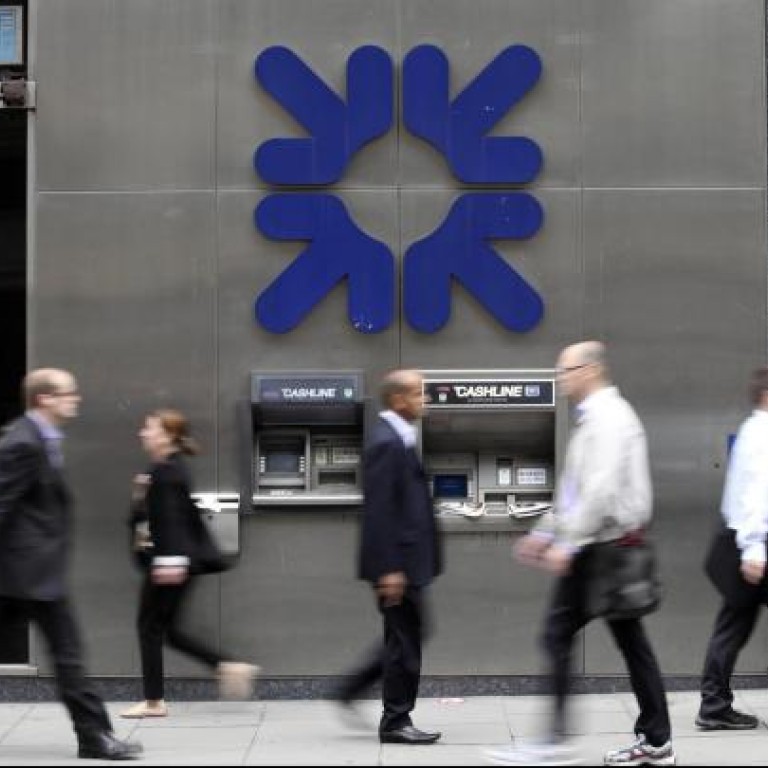
RBS executives accused of being involved in Libor scam
Sources say responsibility went far higher than the four traders who have been fired, with their managers applying pressure to rig bids
Royal Bank of Scotland managers stand accused of condoning and participating in manipulation of global interest rates, indicating that wrongdoing extended beyond the four traders the bank has fired.
In a message conversation in late 2007, Jezri Mohideen, then the bank's head of yen products in Singapore, instructed colleagues in Britain to lower RBS's submission to the London interbank offered rate that day, according to industry sources.
No reason was given in the message as to why he wanted a lower bid. The rate-setter agreed, submitting the number Mohideen sought, the sources said.
Mohideen was not alone. RBS traders and their managers routinely sought to influence the firm's Libor submissions between 2007 and 2010 to profit from derivatives bets, according to employees, regulators and lawyers. Traders also discussed with other firms where rates should be set, one person said.
"This kind of activity was widespread in the industry," said David Greene, a senior partner at law firm Edwin Coe in London. "A lot of the traders didn't consider this behaviour to be wrong. They took it as the practice of the trade. This is how things operated, and it seemed harmless."
RBS, 81 per cent owned by the British government, is one of at least a dozen banks being investigated by regulators worldwide over allegations that traders colluded to manipulate the benchmark interest rate so they could profit from bets on interest-rate derivatives.
Barclays Britain's second-biggest bank, was fined £290 million (HK$3.64 billion) in June for rigging the rate, used for more than US$300 trillion of securities ranging from mortgages to student loans.
Chief executive Robert Diamond and chairman Marcus Agius resigned in the aftermath.
Regulators were now looking at RBS's yen, Swiss franc and US dollar sales and trading businesses, all part of the fixed-income division Fred Goodwin expanded before he was ousted as chief executive in 2008, sources said.
Investigators were focusing on the firm's swaps, inflation-trading and foreign-exchange teams, as well as on the money-market traders who made daily Libor setting submissions, the sources said.
The rate-rigging allegations are the biggest blow to the Edinburgh-based lender since it took £45.5 billion from taxpayers in the largest bank bailout in history and Stephen Hester replaced Goodwin. Analysts including Morgan Stanley's Huw van Steenis estimate the scandal may cost RBS, the country's third-biggest bank by assets, more than any British competitor. The process of setting rates was open to abuse because RBS failed to establish guidelines until June last year, banking sources said.
Managers encouraged rate-setters to discuss Libor with traders across the company as a way of ensuring the bank's submissions reflected market conditions, particularly after money markets froze in 2007, the sources said. These communications, by e-mail, instant messages and telephone, are the focus of regulators' probes.
The British Financial Services Authority imposes no restrictions on banks to prevent communications between traders and rate-setters about Libor beyond a broad requirement for them to identify and prevent conflicts of interest, according to guidelines posted on the agency's website.
RBS fired four employees last year for allegedly rigging Libor rates. So far no senior managers have been suspended or fired, according to a bank source.
The bank was considering disciplinary procedures against some employees, a source said. As part of the probe, in-house investigators had to draw the distinction between undue influence and reasonable sharing of information within the firm, he said.
Mohideen has denied he pressured anyone to submit false rates.
"That didn't ever happen," he said, and referred all further questions to RBS spokesmen.
The bank said its internal probe into rate-rigging was continuing and that it was co-operating with regulators.
Libor is calculated by a poll carried out daily on behalf of the British Bankers' Association that asks firms to estimate how much it would cost to borrow from each other for different periods and in different currencies.

